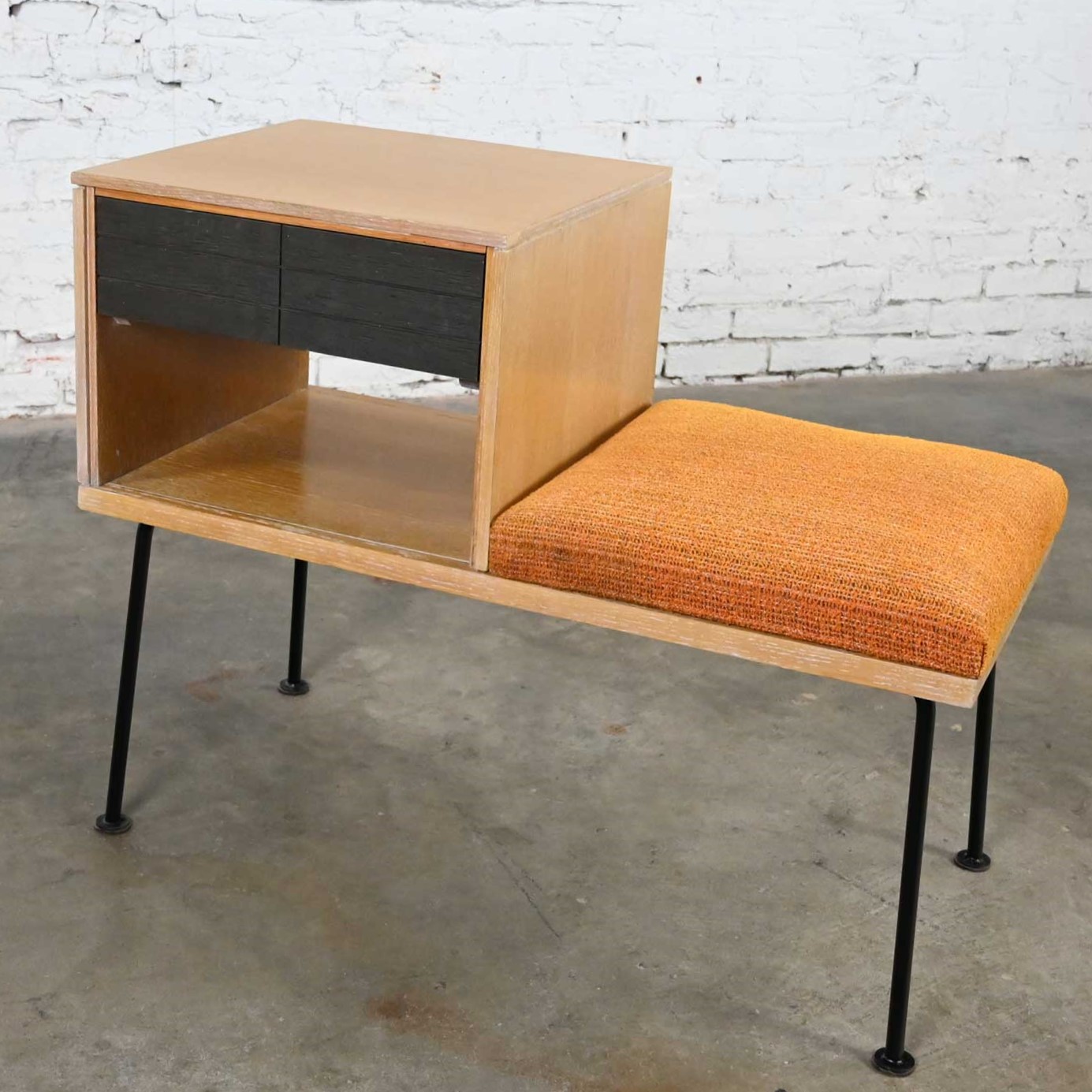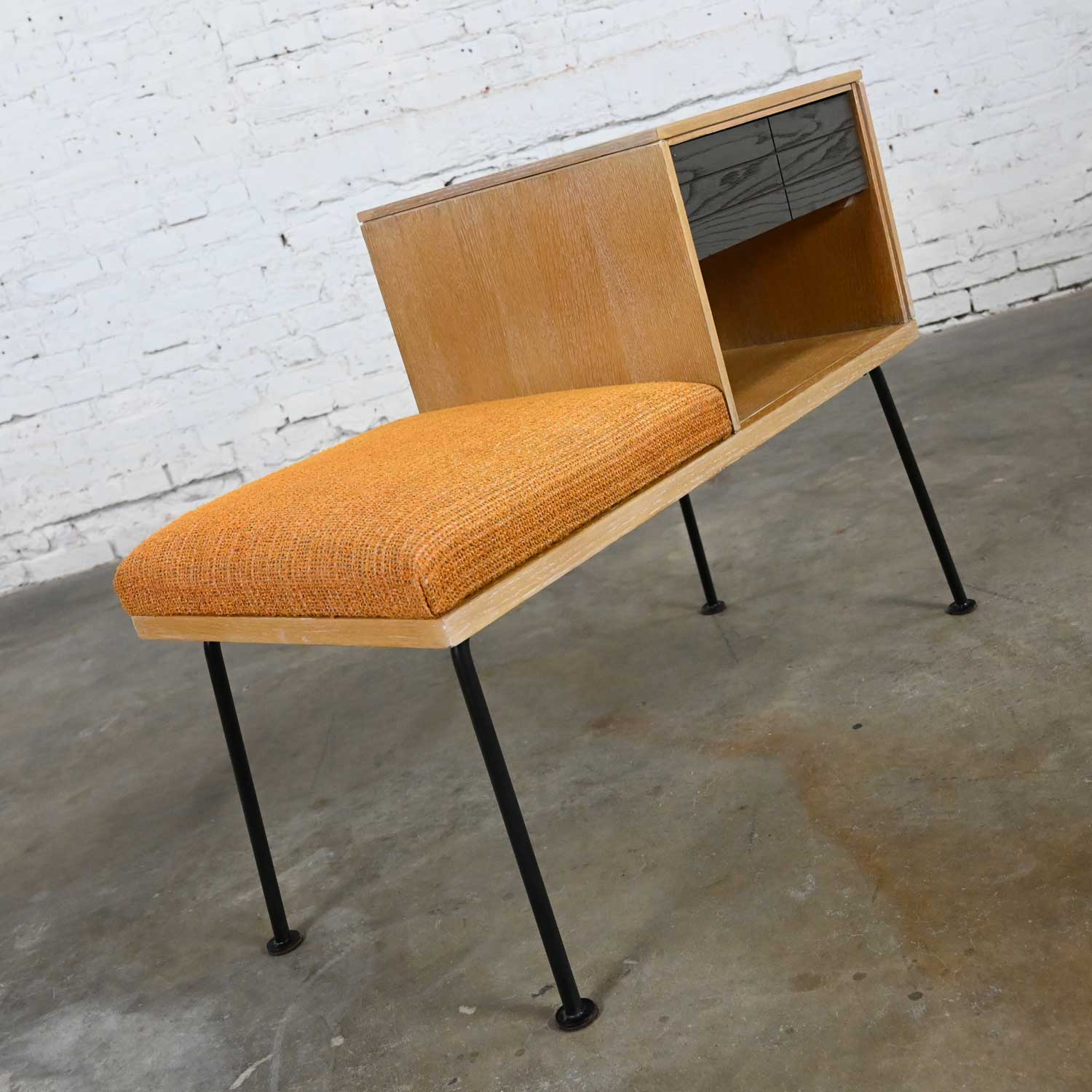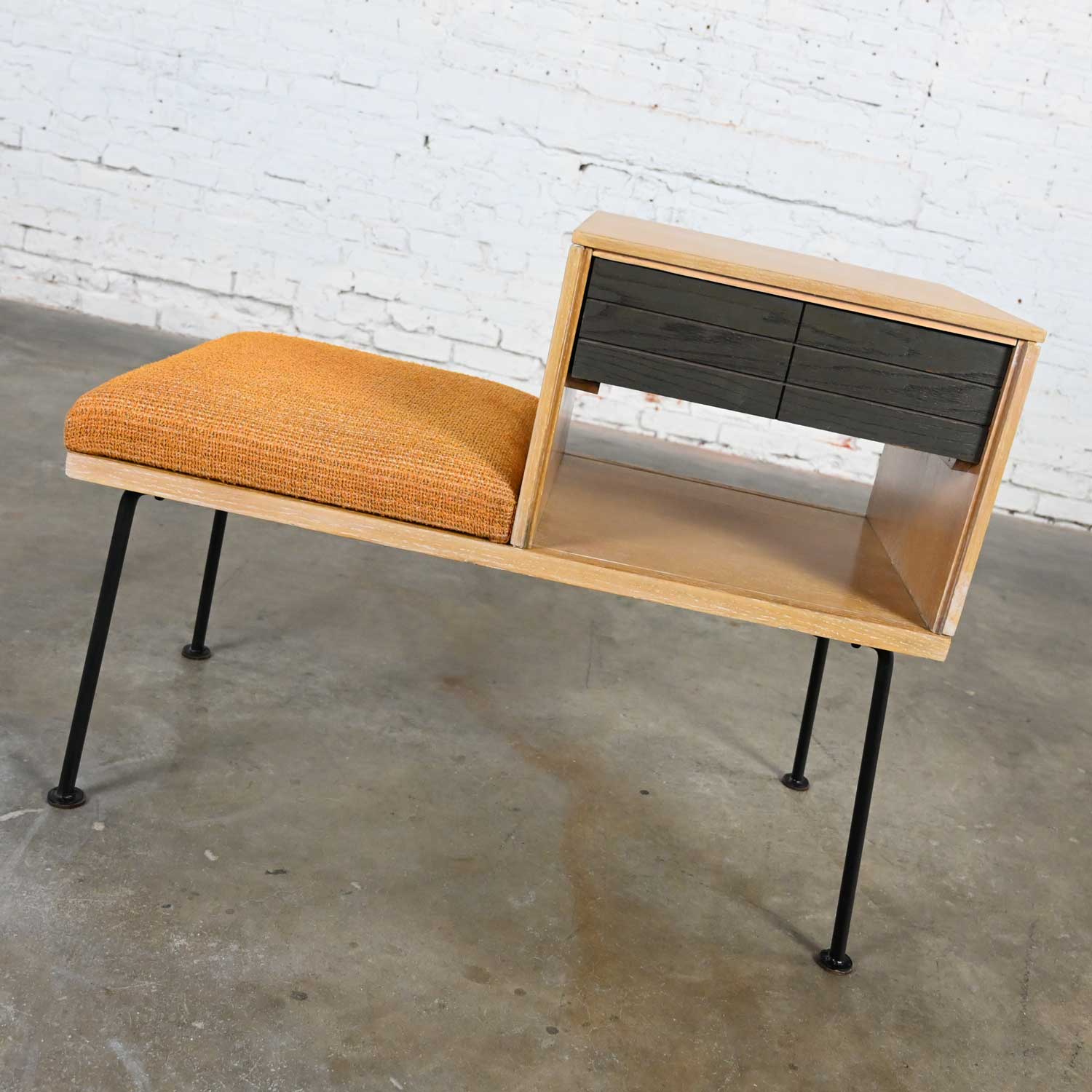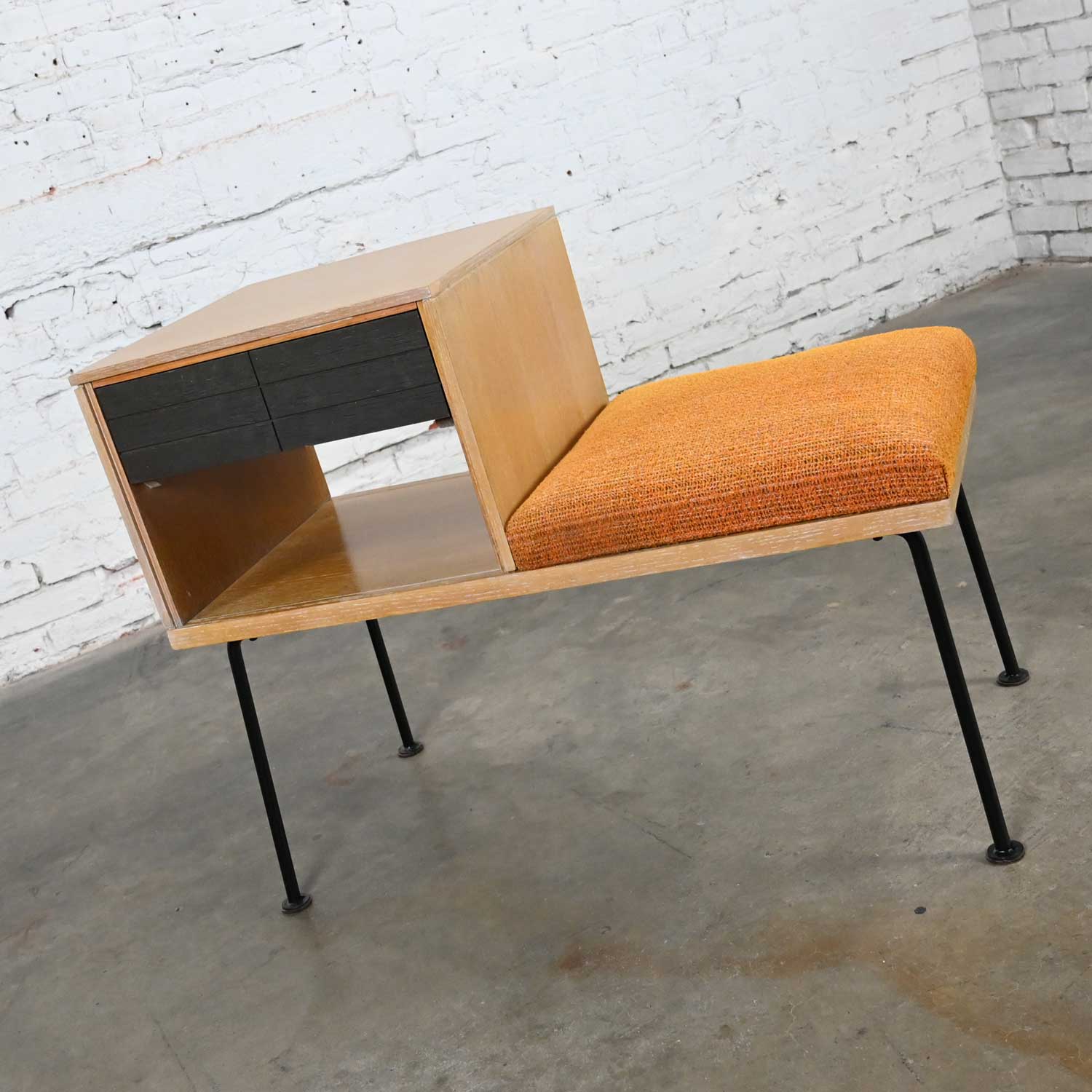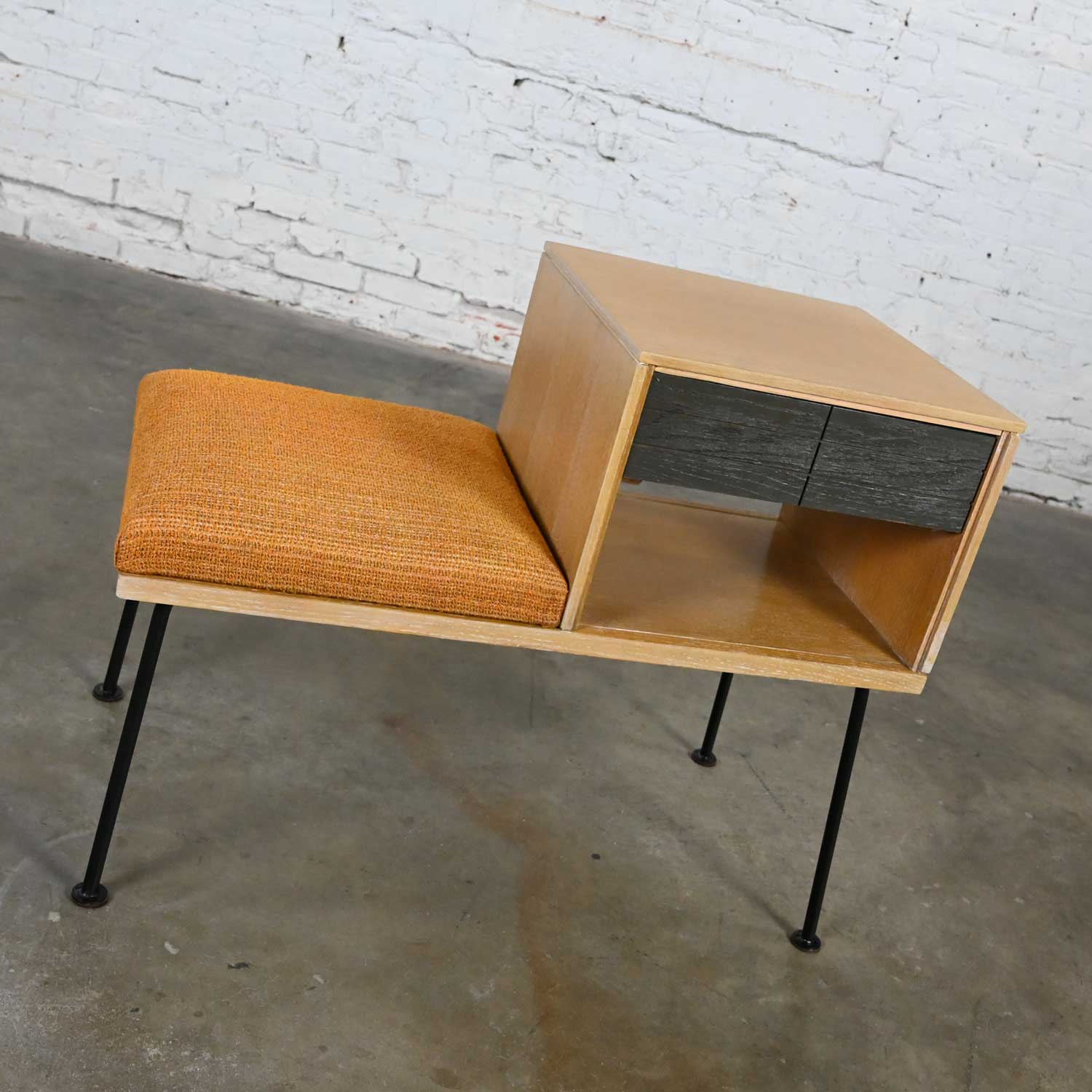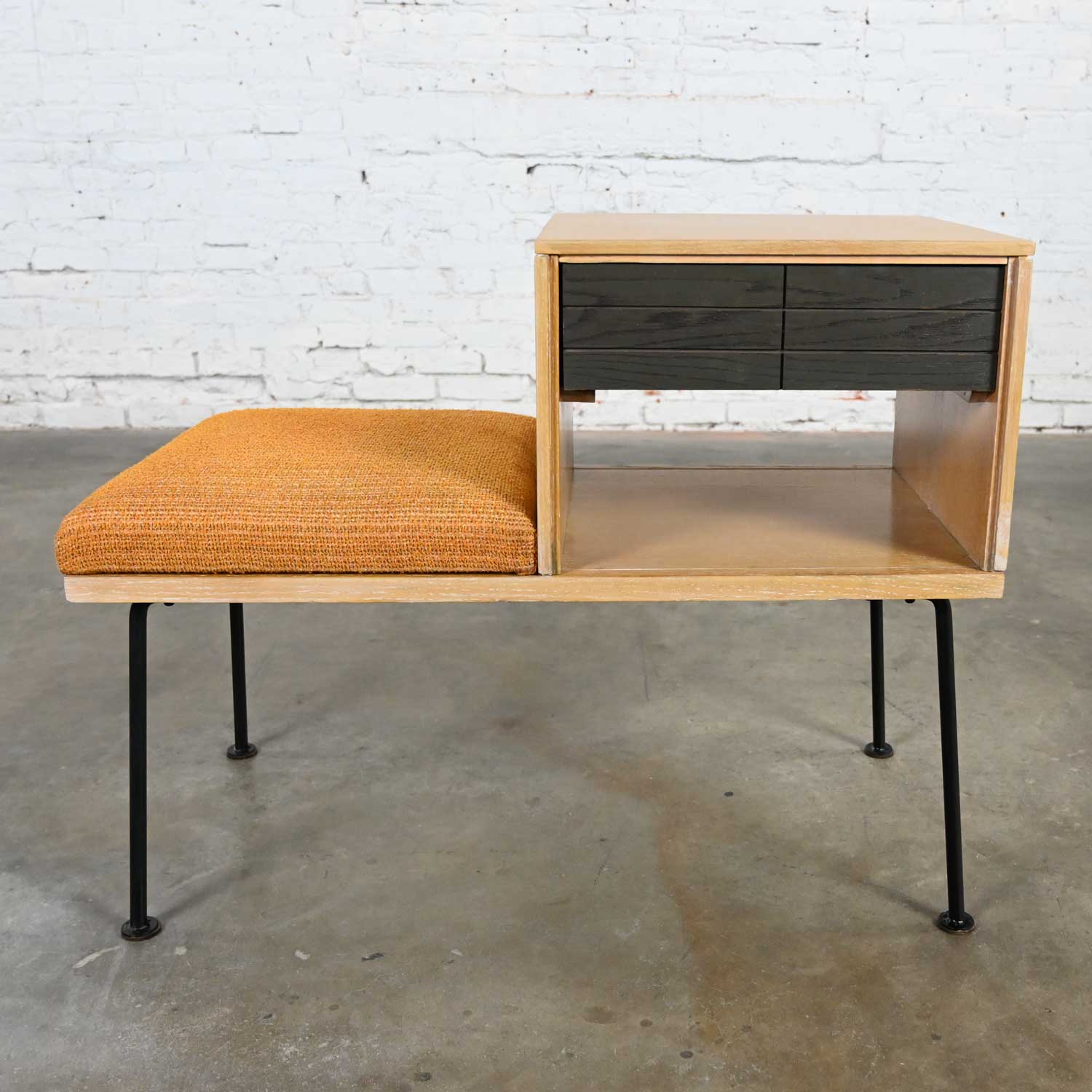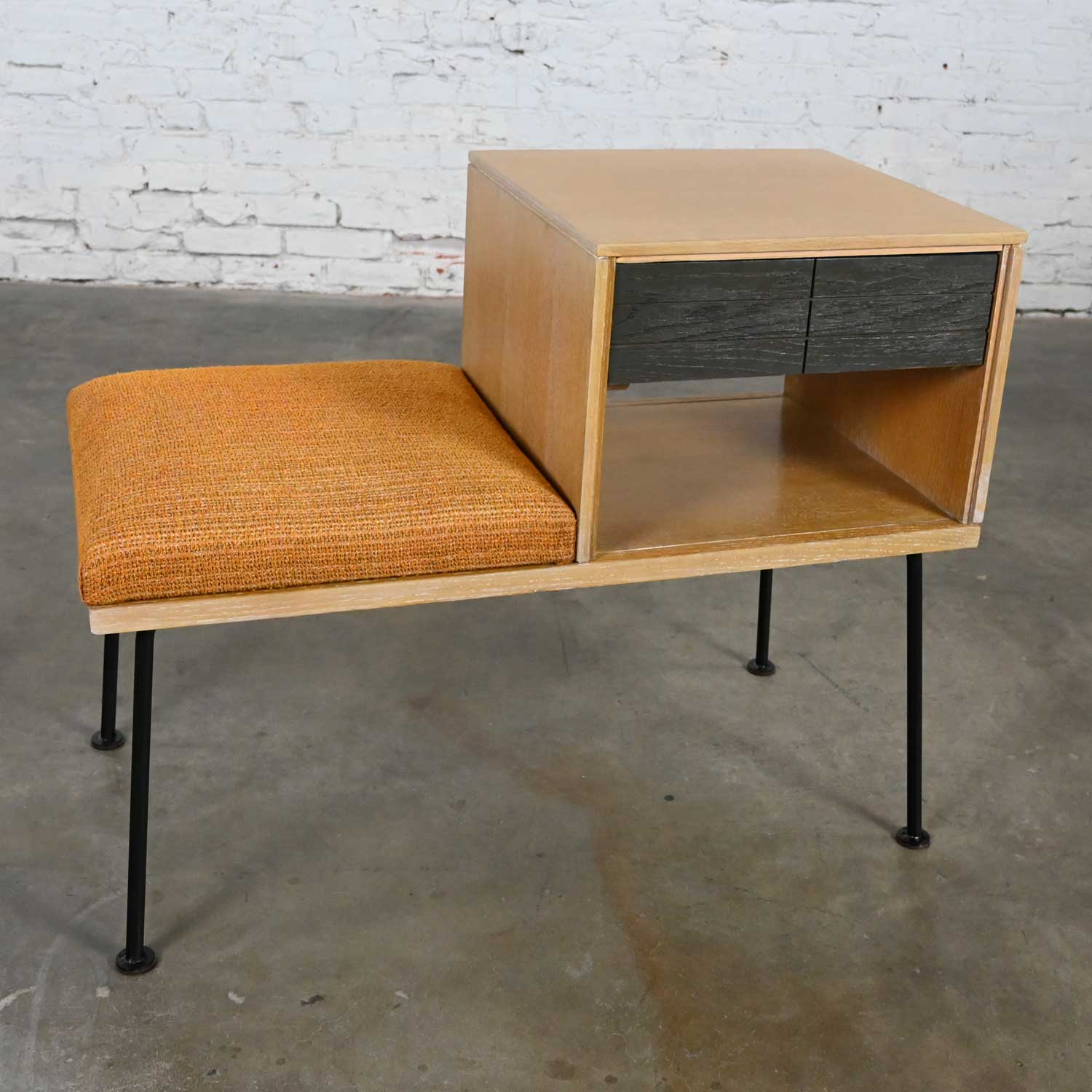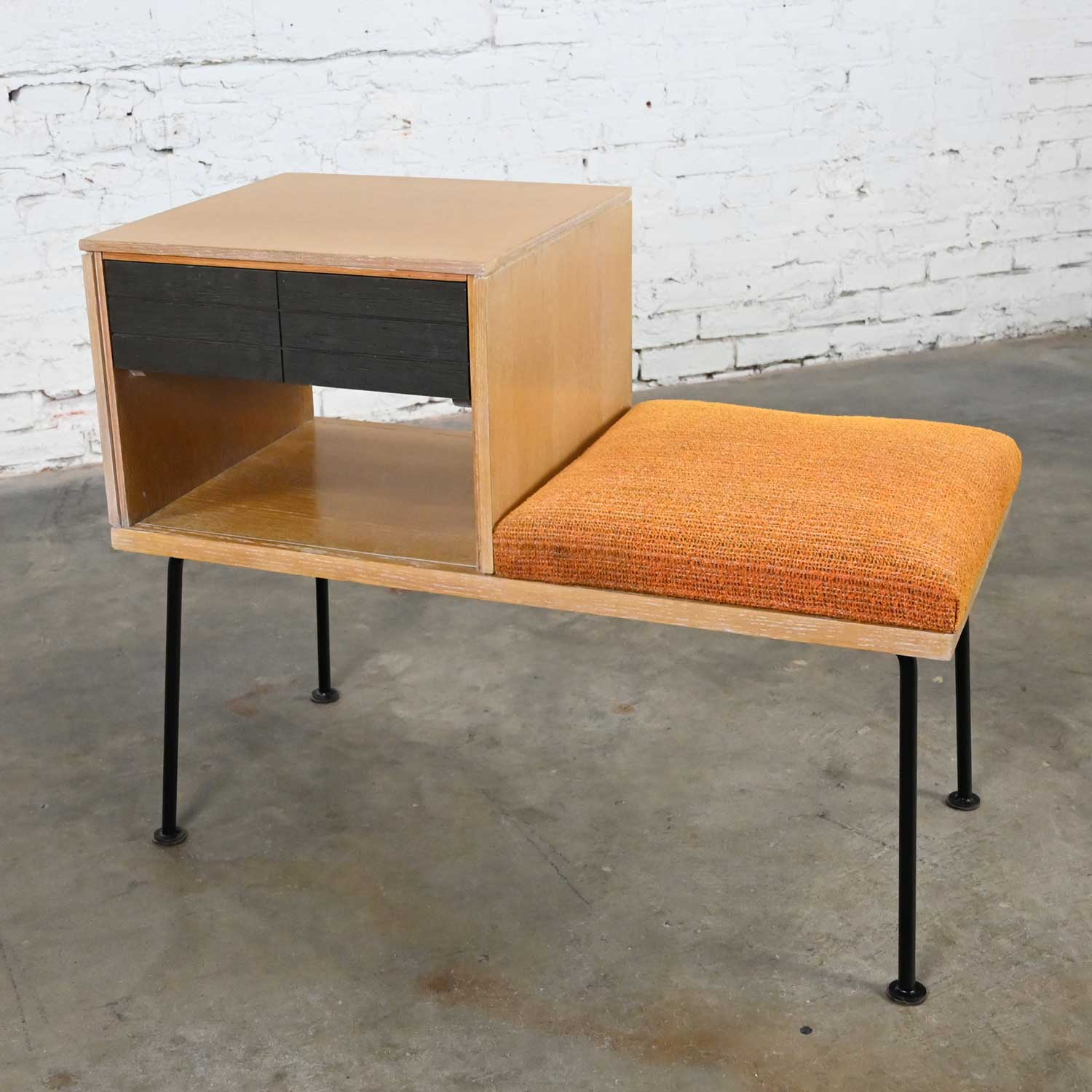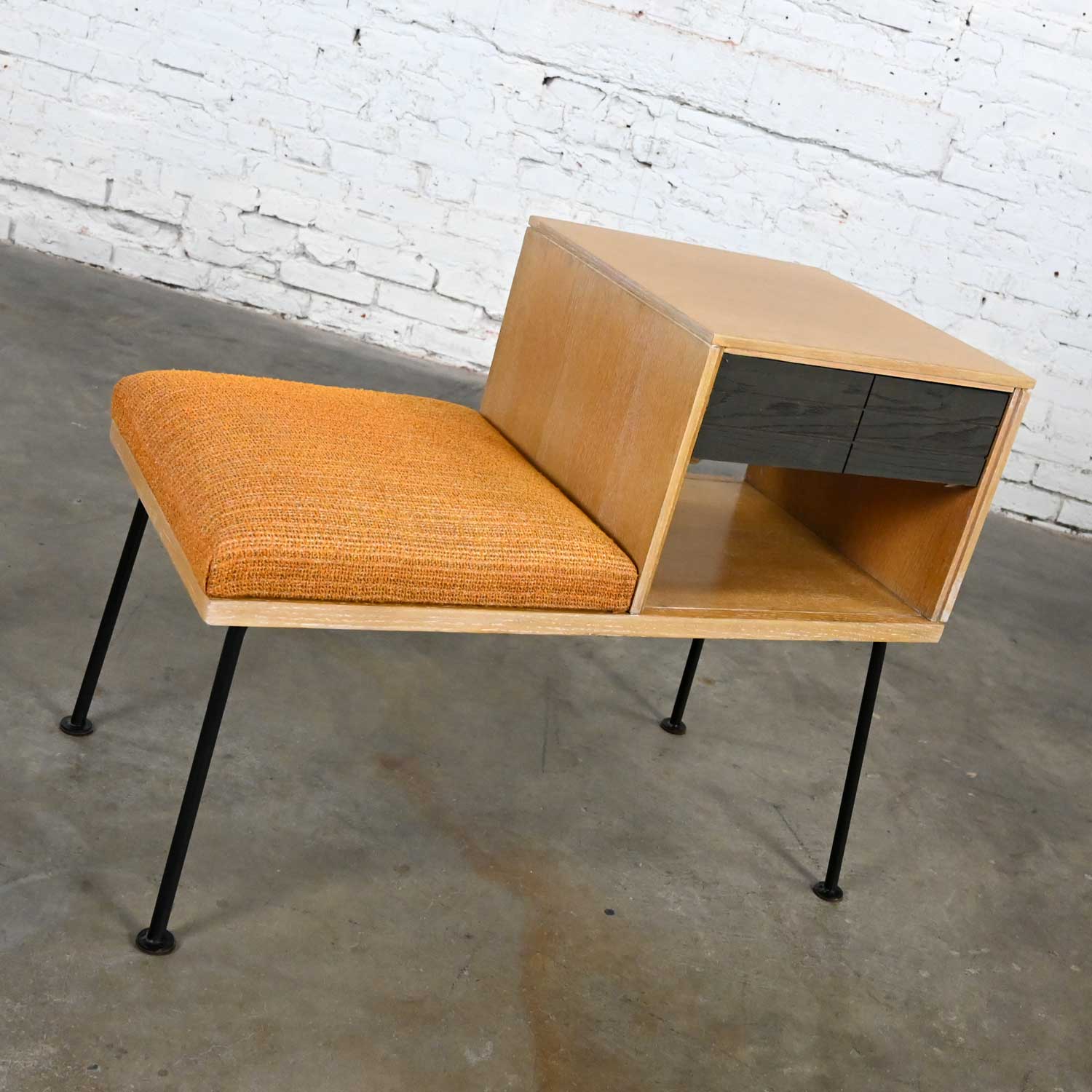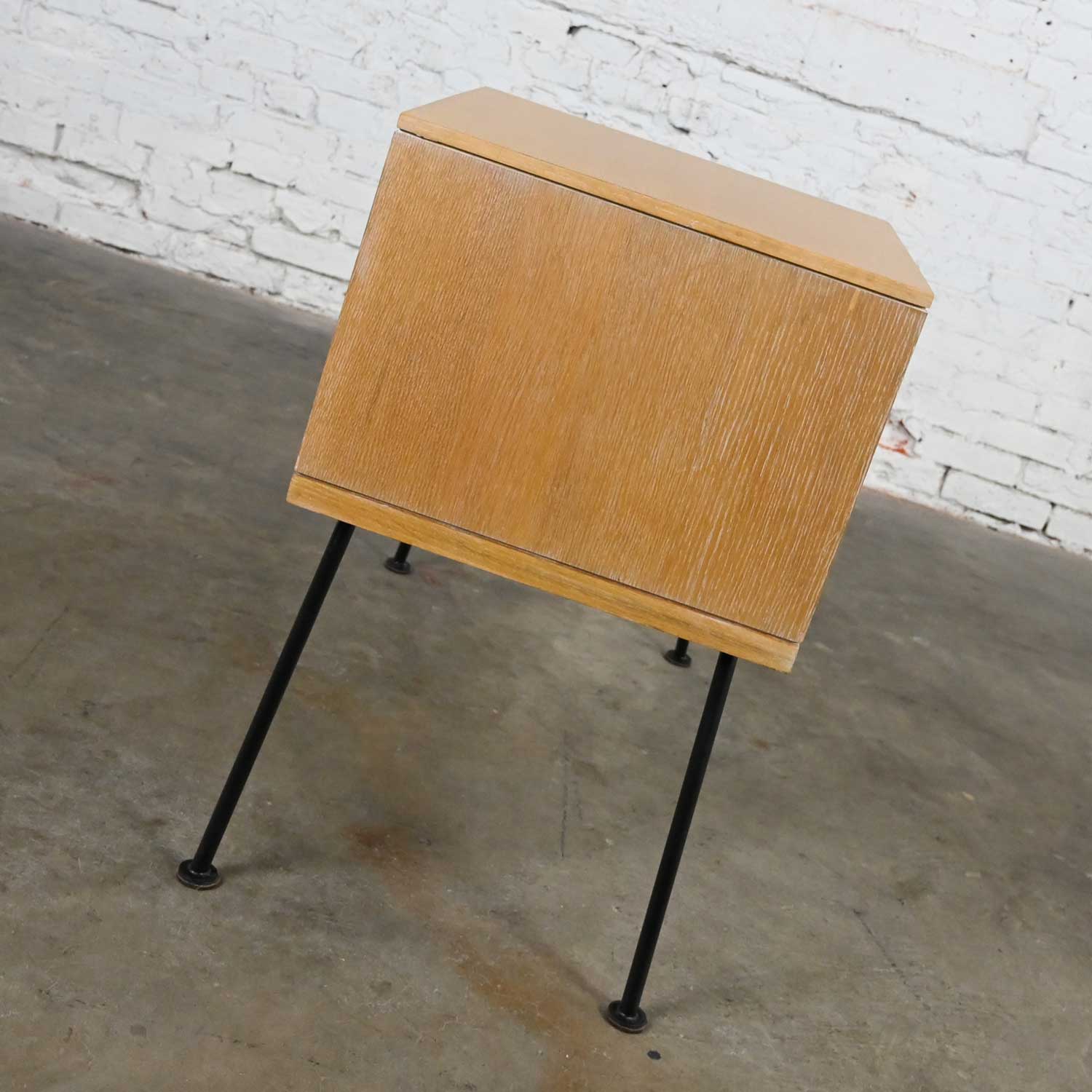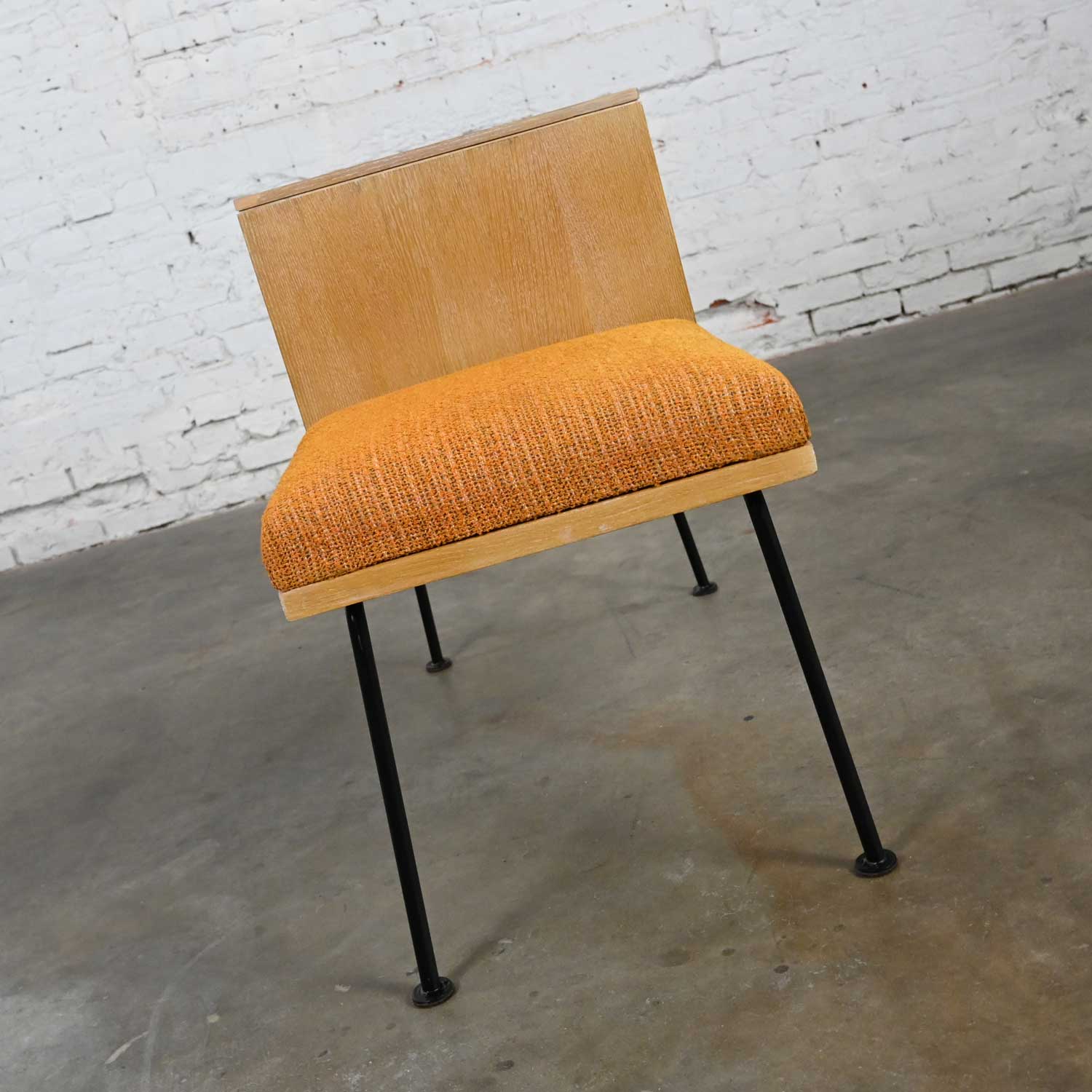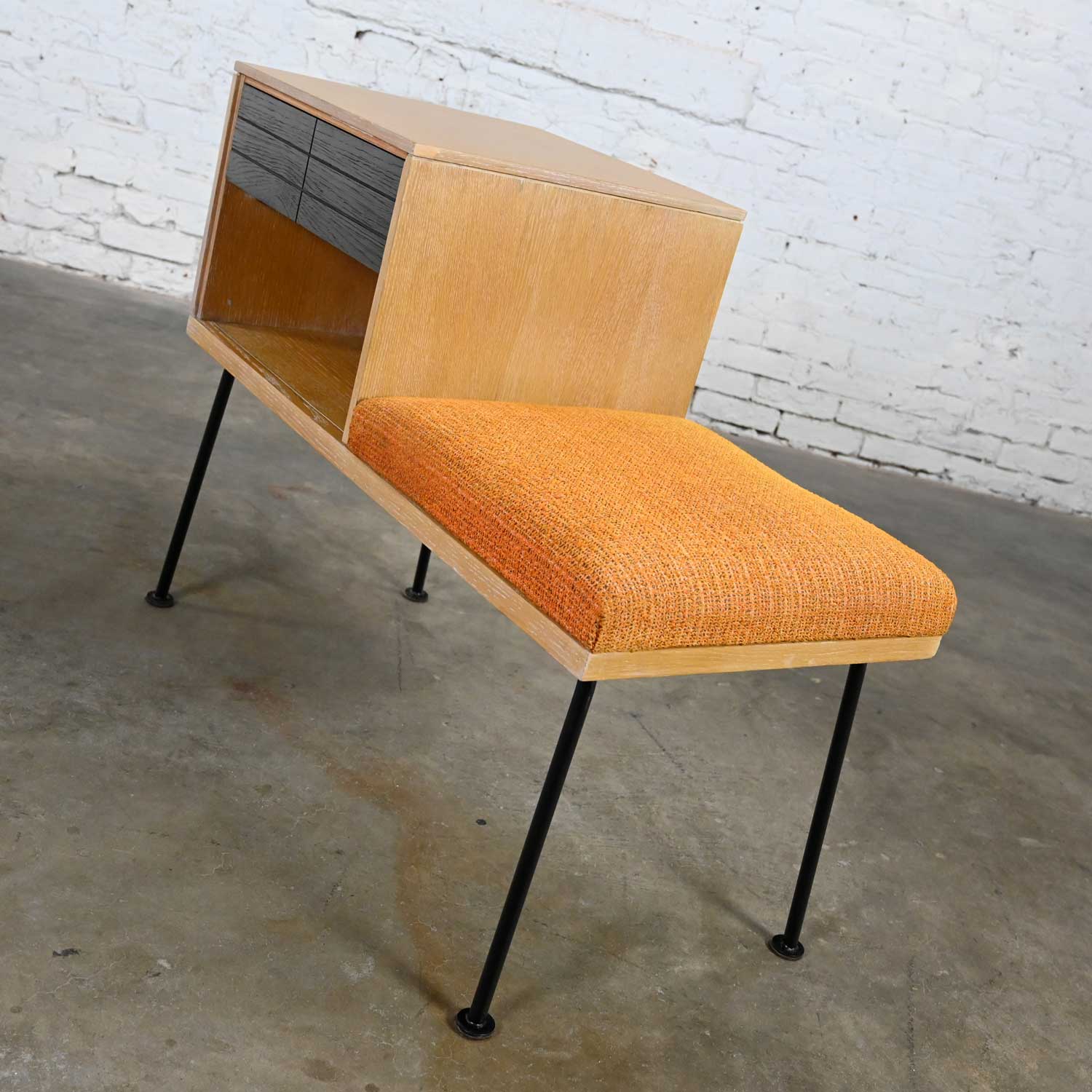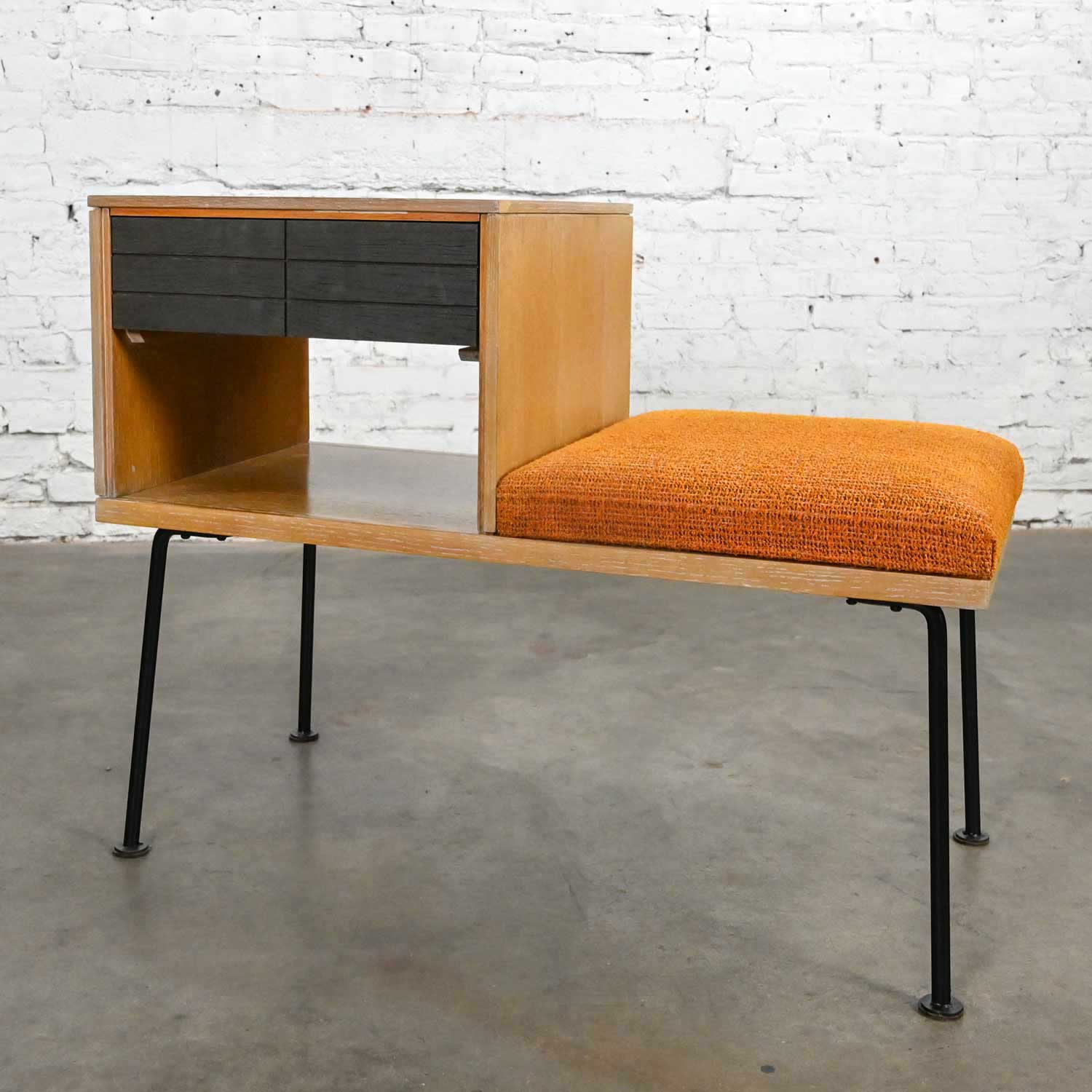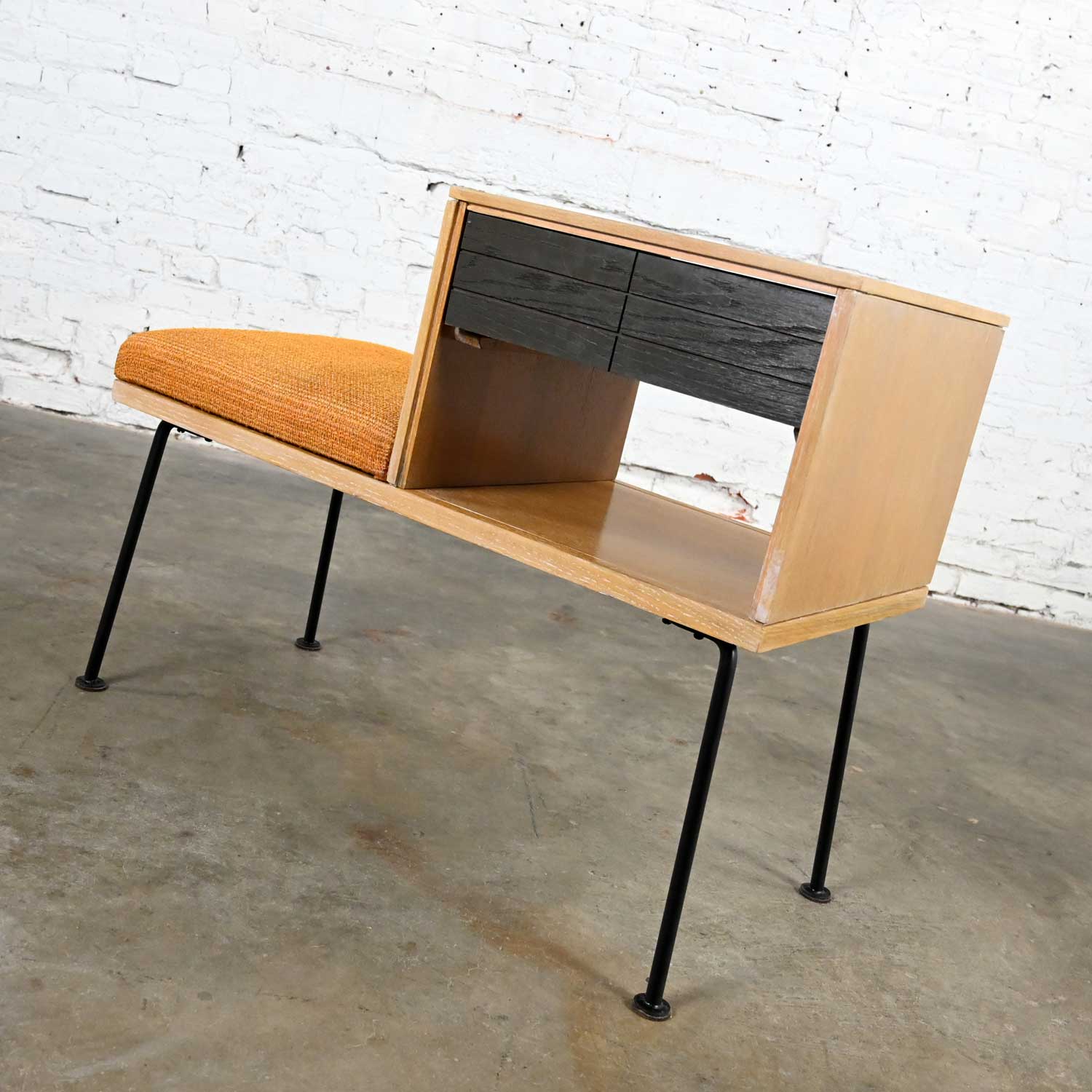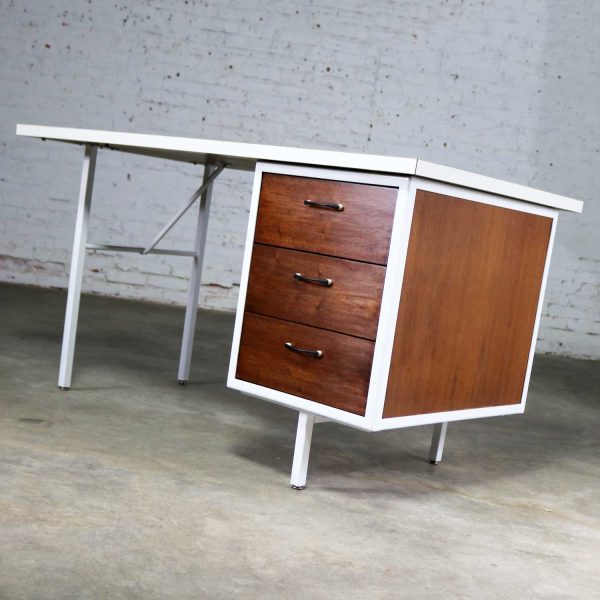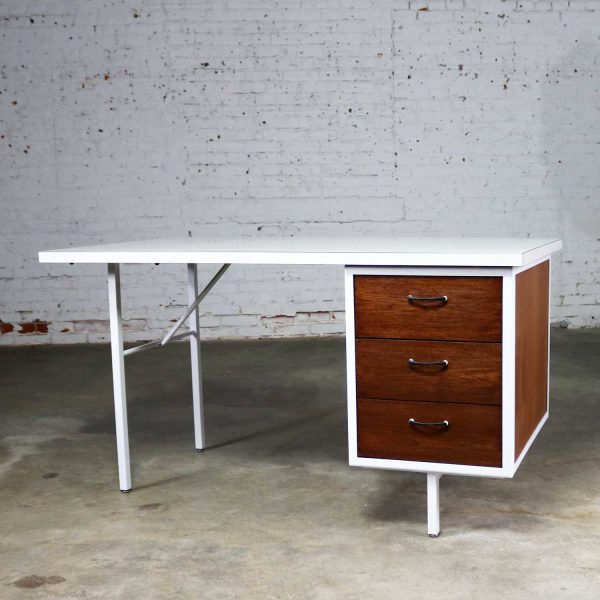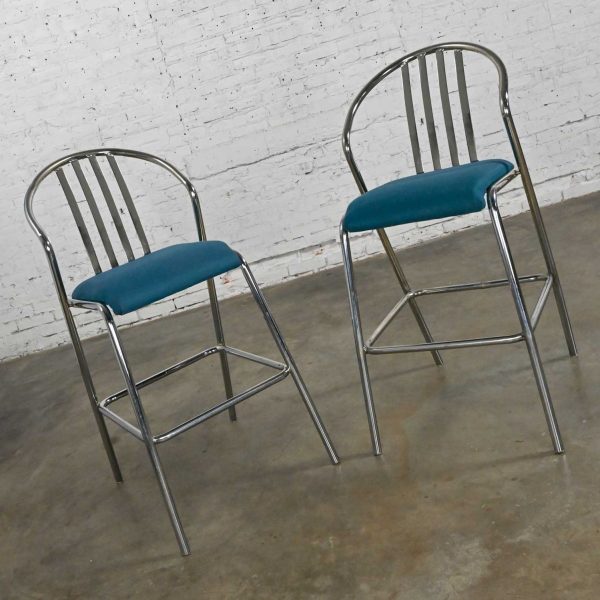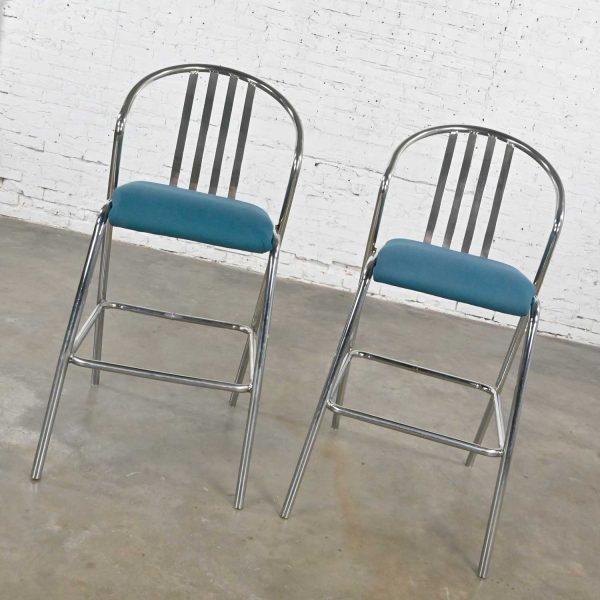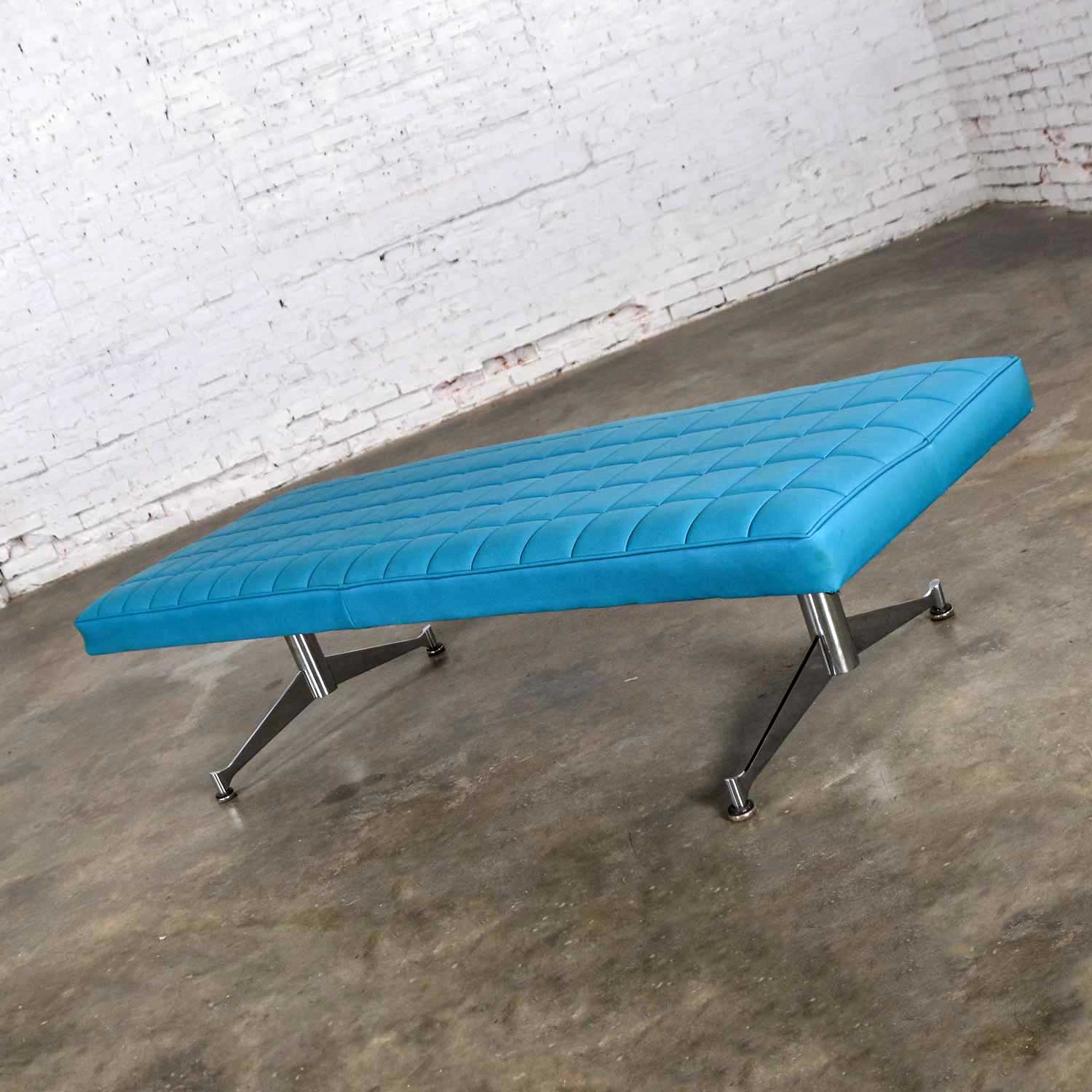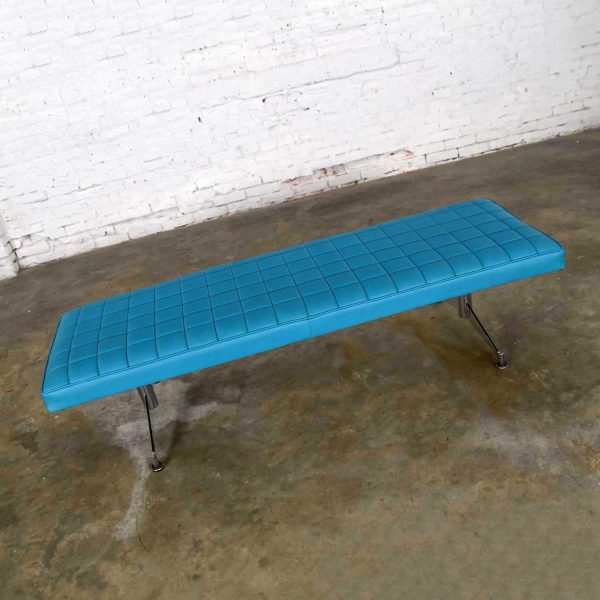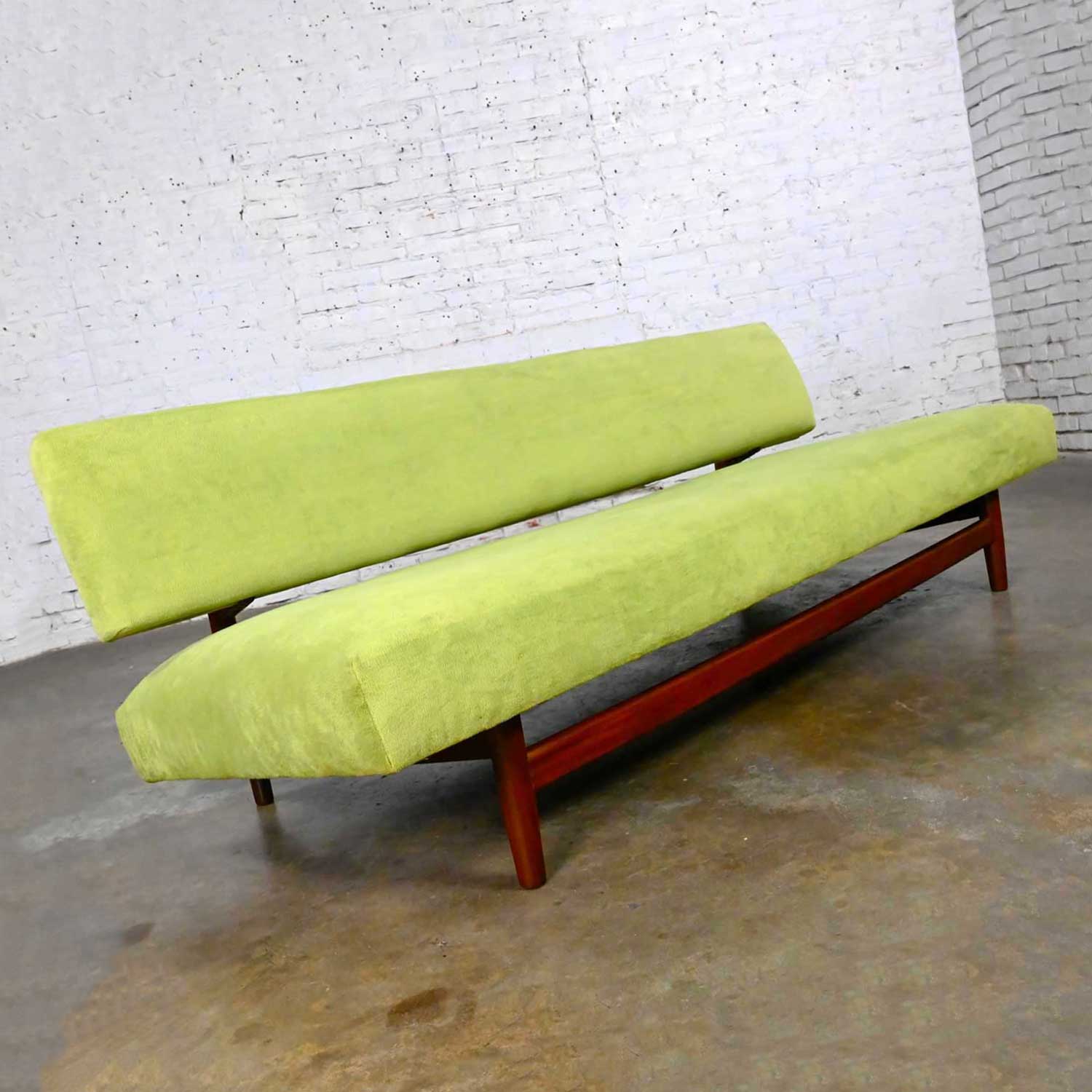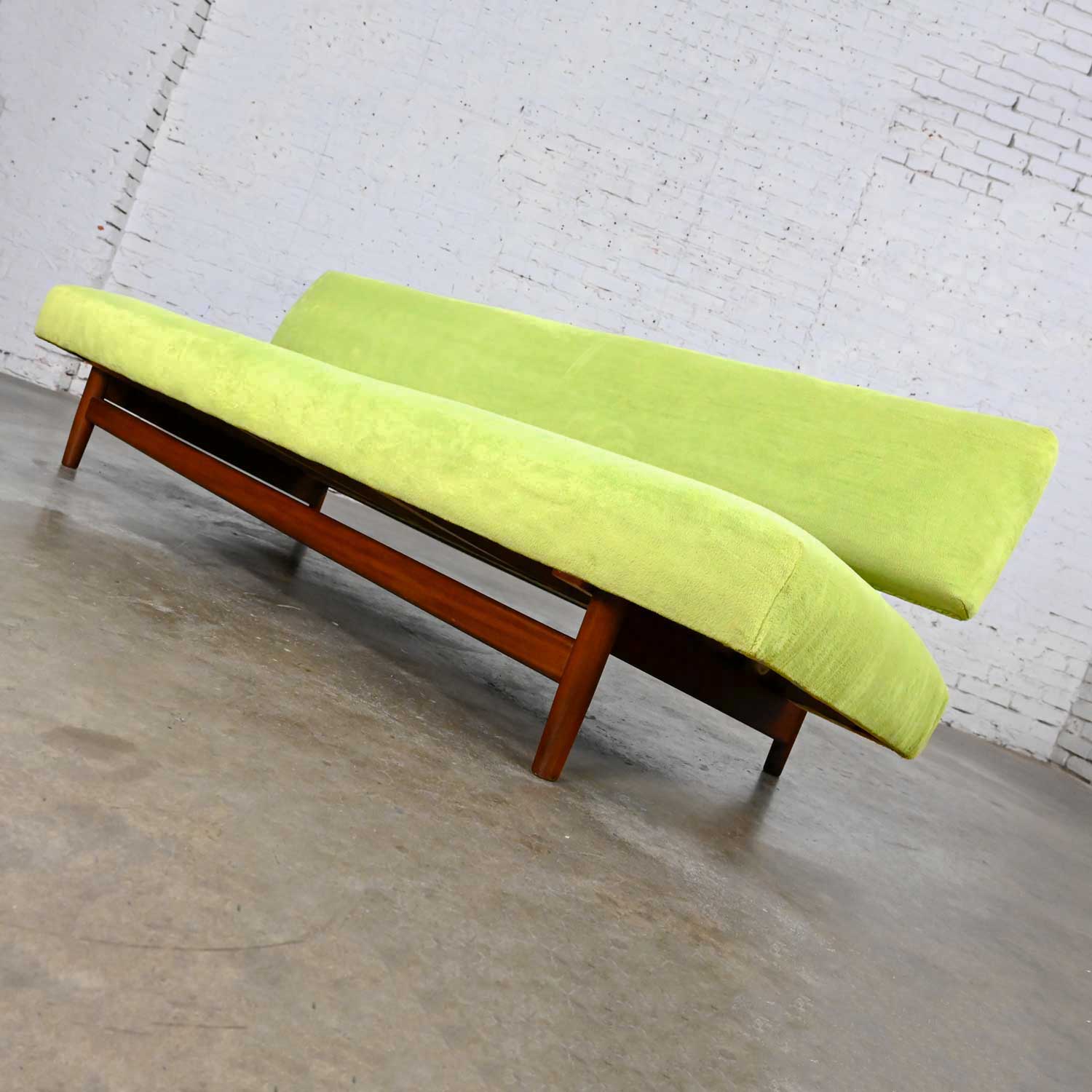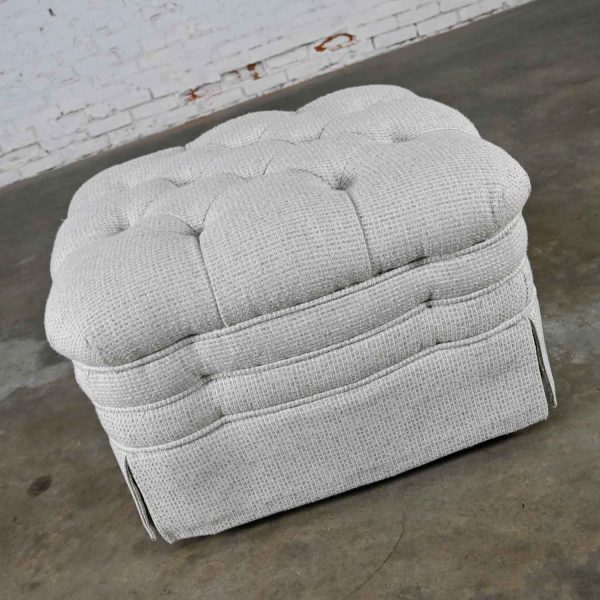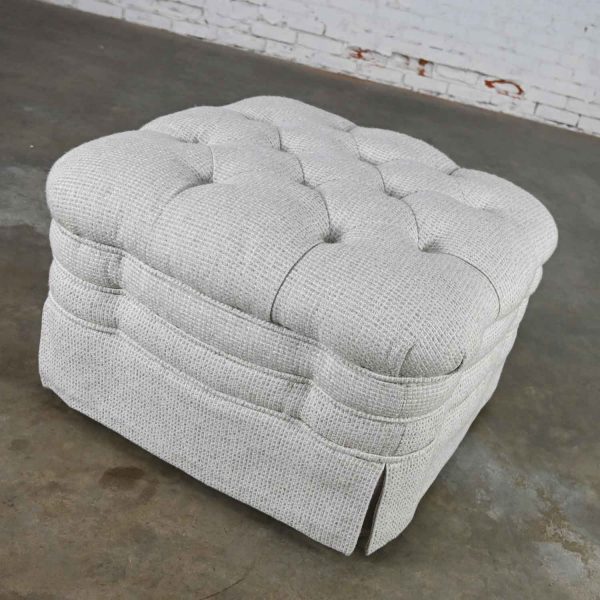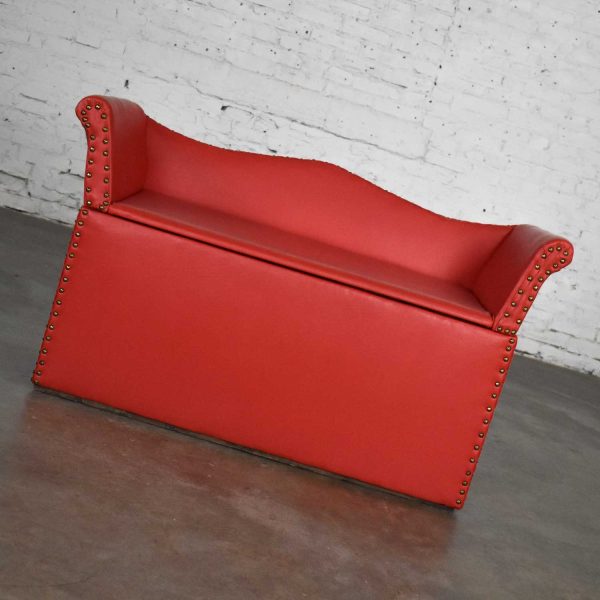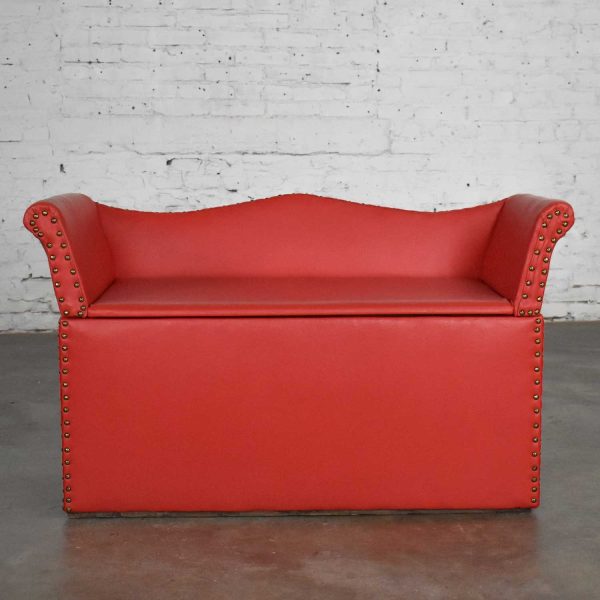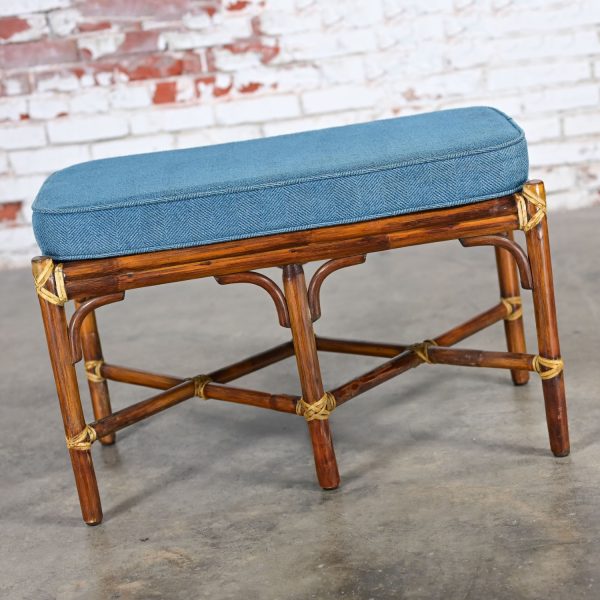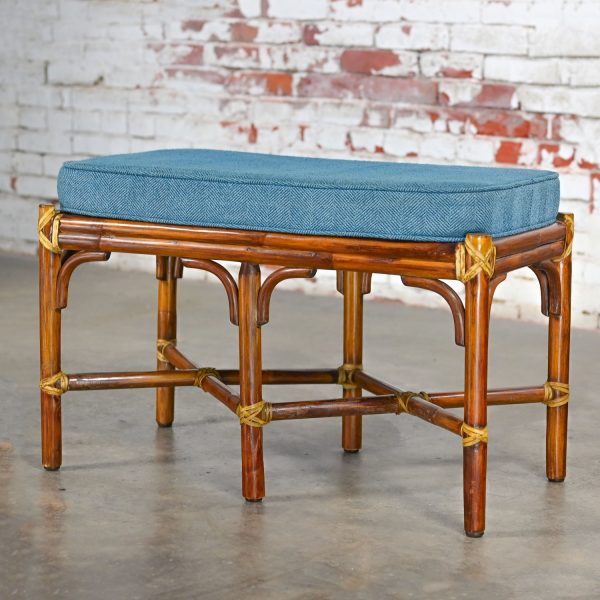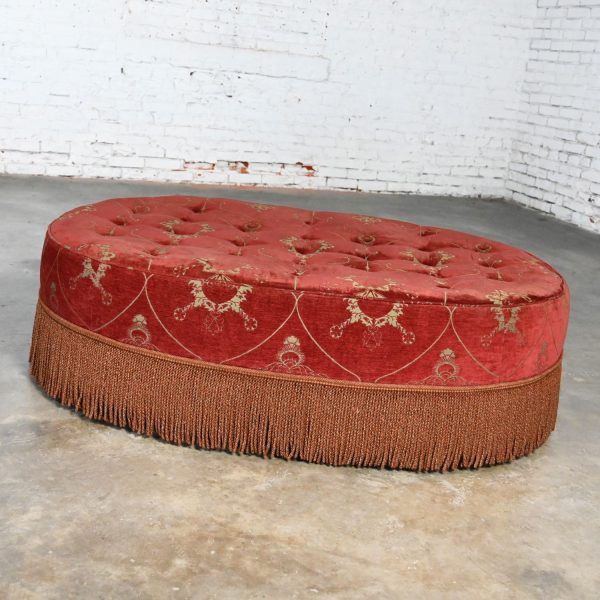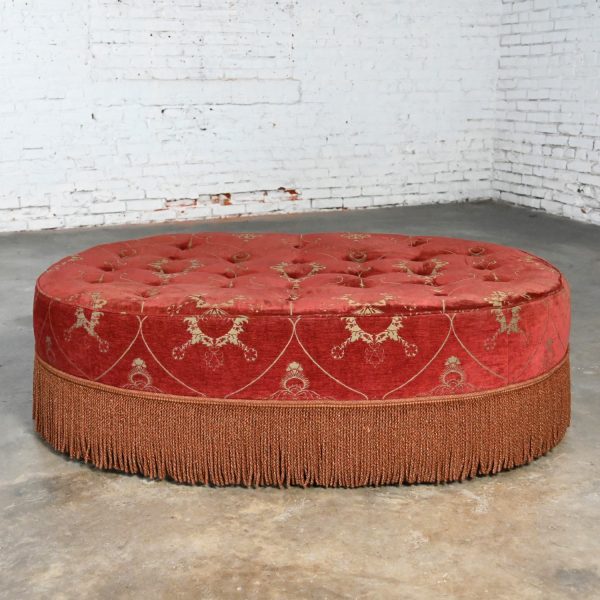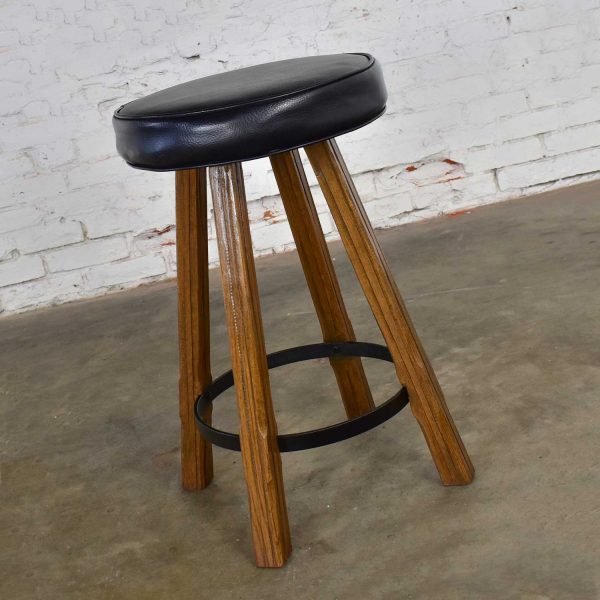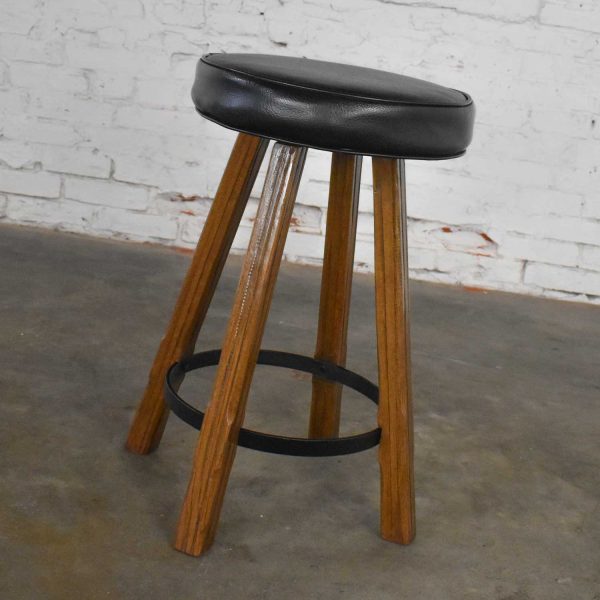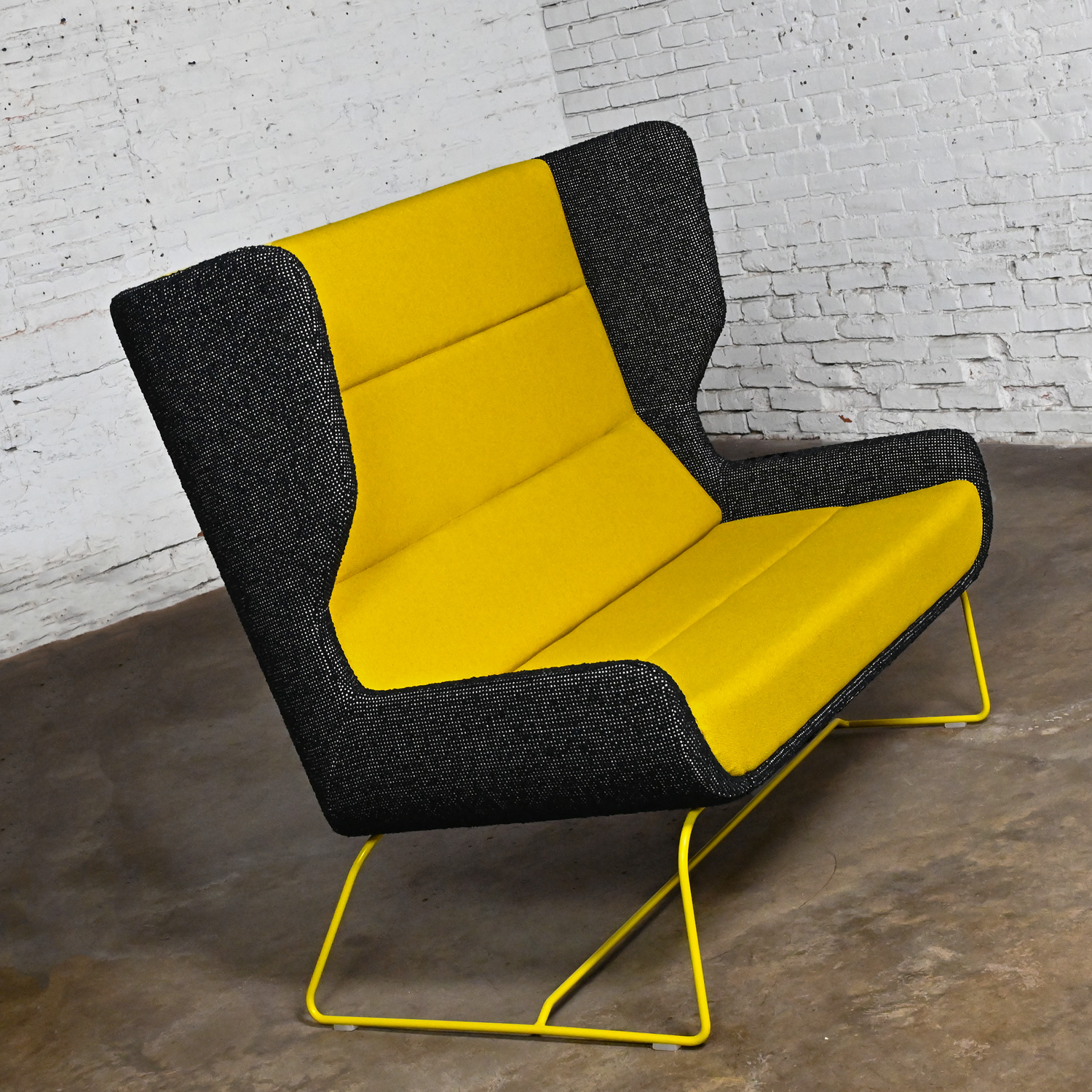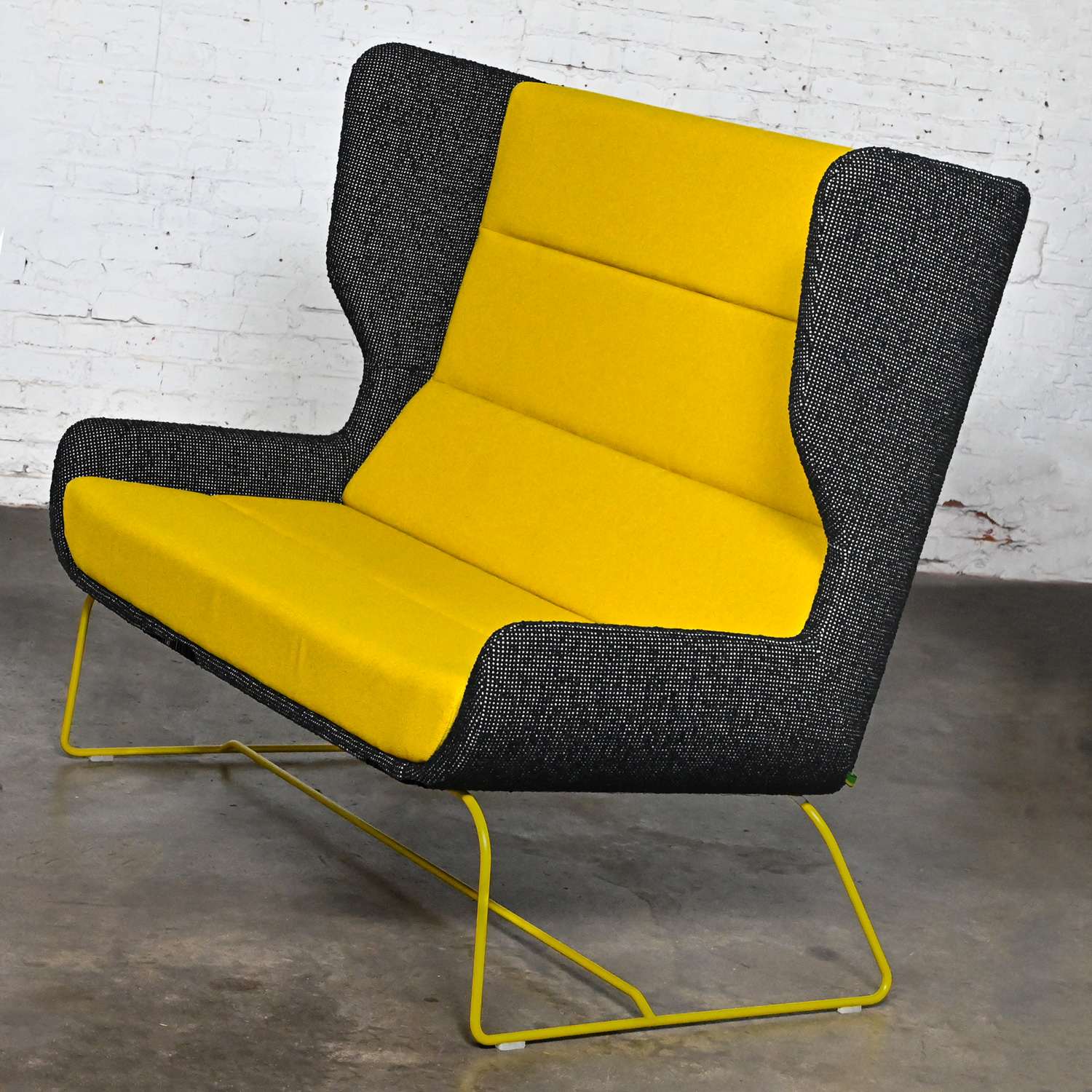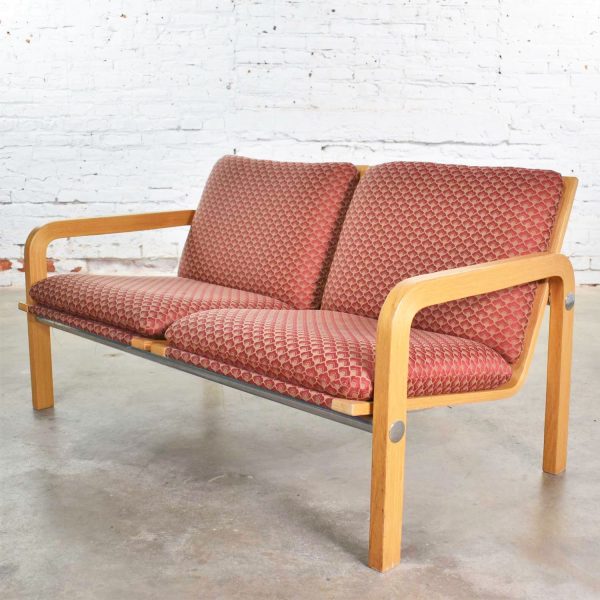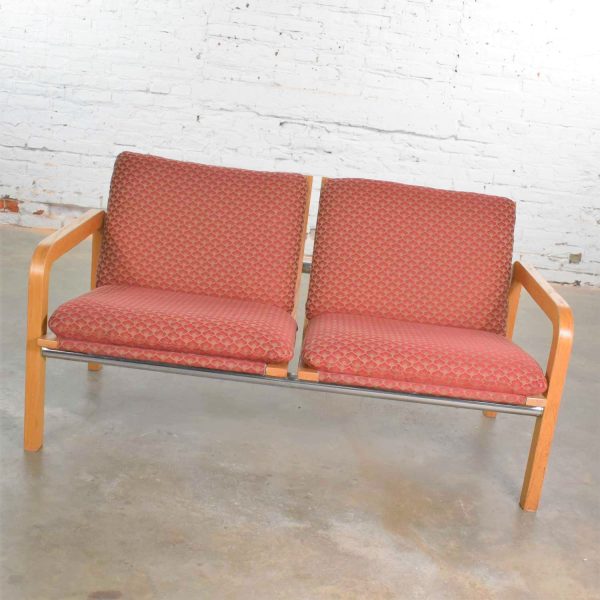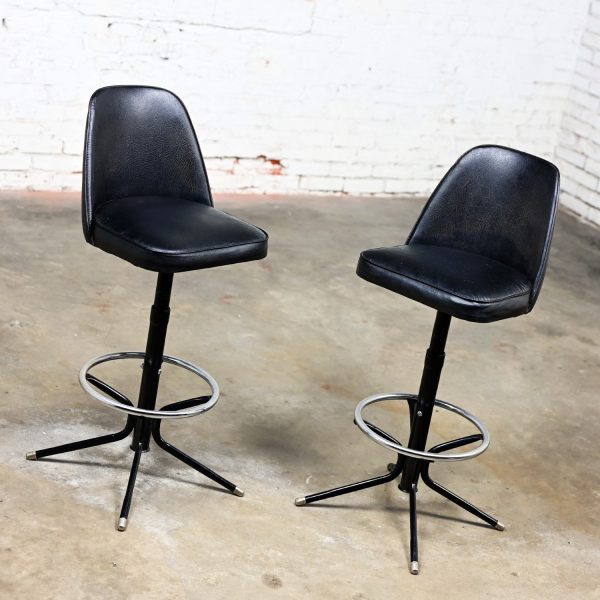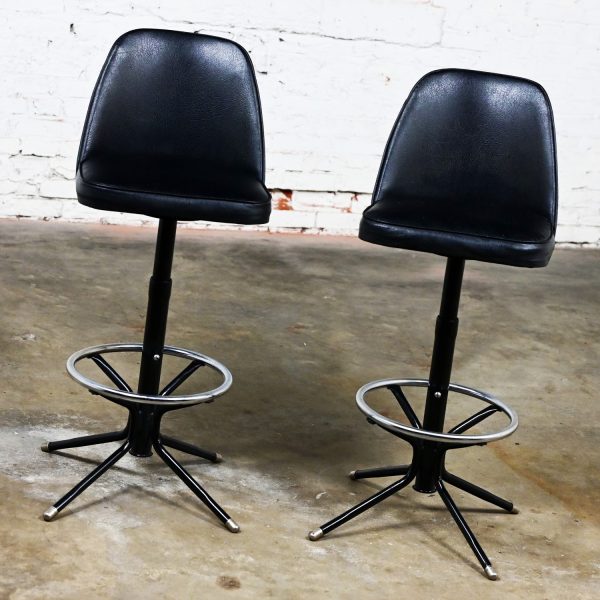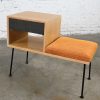RING, RING, RING…. Would someone please answer that phone? Ok, ok, you may not have a landline, but BOY do we have the perfect place for you to sit and relax while you answer that call… WOW!!! This is an AWESOME vintage telephone bench designed by Raymond Loewy for Mengel!! It is comprised of a limed oak veneer case, a limed oak cube or cubby with top drawer that slides both ways with charcoal colored cerused oak drawer fronts on both sides, straight black iron legs, and a fabulous square seat wearing its original gold fabric!!! IT. IS. FANTASTIC!!! And it is beautifully finished all around so it can float in any room of your home. This telephone bench or “gossip bench” as they used to call it, is a MUST HAVE for a small entry way as a wonderful place to sit and remove your shoes with a convenient spot to place your keys. These were a popular place to put your home phone long before cell phones were so prominent… and it would still be a great next to your bed for a designated place to plug in that cell phone, a lamp, or sculpture. It would be awesome as a plant stand adorned with foliage, as a small desk for a place to jot down a recipe or a quick note, or in any room that is screaming for some vintage nostalgia.
C.C. Mengel formed the Mengel Furniture Co. sometime following the Civil War in Louisville, Kentucky. In addition to household furnishings, they also produced wooden washing machines and boxes in various sizes. In order to ensure an adequate supply of lumber they operated mills in Belize, British Honduras, and Arizona. C.C. Mengel Jr. and C.R. Mengel took over the firm at the turn of the 20TH century, which was now called C.C. Mengel & Brothers Co. At the time it was the country’s largest manufacturer of wooden boxes. New product lines appeared in the early twentieth century including the very popular Mengel Playthings line of wooden toys. Their primary products were wooden wagons, tricycles, and wooden slides. Mengel had also been supplying automakers with wooden components since the erection of the Ford Motor Company’s Louisville assembly plant and Monroe convinced the firm’s directors to build a new facility to supply similar products to additional manufacturers. In 1924 Mengel took out a license to manufacture Meritas-clad composite bodies using Kenneth L. Childs patents for the Louisville Ford distributor. Their town car bodies were marketed as an upscale alternative to the standard Model T and were available with a Rolls-Royce-style radiator. They also offered a line of commercial bodies and are one of the known body builders for the US Postal Service. The disappearance of the composite body ended Mengel’s work for Ford and other automobile manufacturers. The firm chose to concentrate on their successful door and furniture business which included some beautiful art-deco radio cabinets for Philco. Following the war, they started manufacturing doors and windows for the growing construction industry and also built a popular line of home furnishings, bedroom sets, dining room sets, and living room furniture. They were purchased in 1956 by the Kroehler Manufacturing Co. who slowly eliminated their furniture line, electing to concentrate on their popular doors and windows. -coachbuilt
Raymond Loewy, an iconic French American designer who was dubbed “the father of industrial design,” had many well-known projects; and over his career span he consulted with over two hundred companies, leaving his mark in the design world. Some of his most notable achievements include the popular Shell, Exxon, BP, and TWA logos; a Greyhound bus; an S-1 locomotive; the Lucky Strike cigarette package; the Coldspot refrigerator for Sears; the Avanti for Studebaker; plus, designs for Harley Davidson and Coca Cola. He also designed NASA Skylab, the Airforce One livery, and the John F. Kennedy memorial postage stamp, among other notable items. From products such as furniture to public transportation Raymond Loewy took pride in making what he called “the mundane side of the 20th Century more beautiful.” He worked for Mengel from 1950 to 1959. Notably Raymond Loewy was featured on the cover of TIME magazine in October 1949 and in 1975 the Smithsonian Institute opened “The Designs of Raymond Loewy,” a four-month exhibition dedicated to his life’s work and achievements. Mr. Loewy passed away in 1986.
Iconic Designer and manufacturer, high quality, and superior style. This magnificent vintage telephone bench has it all. You know you want it, just make it yours!


